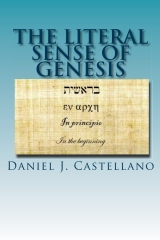 Catholic Literary Treasures Catholic Literary Treasures 
 From among the thousands of books I have encountered, there are only a few dozen that I find valuable enough to actively recommend to others, not counting the numerous well-known classics. The books listed here should be of special interest to orthodox Catholics, as well as to those generally interested in philosophy, theology and history. Sadly, some of these works are out of print or not as well known as their quality and significance should merit. I post a partial list here so that they may be rediscovered by a new audience. From among the thousands of books I have encountered, there are only a few dozen that I find valuable enough to actively recommend to others, not counting the numerous well-known classics. The books listed here should be of special interest to orthodox Catholics, as well as to those generally interested in philosophy, theology and history. Sadly, some of these works are out of print or not as well known as their quality and significance should merit. I post a partial list here so that they may be rediscovered by a new audience.
- Joseph Bernhart, The Vatican as a World Power
 (Longmans: New York, 1939) (Longmans: New York, 1939)
A brilliant history of the Papacy from St. Peter to the twentieth century, expounding a beautiful ecclesiology of the Church’s developing self-awareness of her monarchical constitution. Bernhart addresses famous controversies frankly and fearlessly, combining Catholic orthodoxy with scholarly rigor. Originally published in German as Der Vatikan als Weltmacht.
- St. Charles Borromeo, ed. Catechism of the Council of Trent,
 available online available online
Forget everything you think you know about the Tridentine Church until you’ve read the Roman Catechism, a beautiful exposition of Catholic beliefs centered around the Creed, the Our Father, the Ten Commandments, and the Sacraments. Suffused with human warmth and intellectual sophistication, it is an invaluable confessional aid that bridges the faith of the Fathers with the modern era.
- François Dreyfus, OP, Did Jesus Know He Was God?
 (FHP: 1984) (FHP: 1984)
Using modern critical techniques, Fr. Dreyfus shows that Jesus knew his divinity through his human nature via a beatific vision of the Holy Trinity. He also shows that Johannine theology accurately represents Jesus as he knew himself and is consistent with the synoptic Gospels.
- Etienne Gilson, God and Philosophy

Shows how the concept of divinity has played an indispensable role in the development of Western philosophy from the ancient Greeks through Descartes. Argues that modern philosophy has been able to ignore God only by restricting its scope of inquiry from why to how.
- Etienne Gilson, Being and Some Philosophers

Gilson was not originally educated as a Thomist, but he came to adopt Thomism after becoming convinced that it is the only philosophy that adequately addresses the basic questions of the metaphysics of being. This volume addresses questions of being and existence at their deepest and most difficult levels.
- E. Paolo Lamanna, El pensamiento en la Edad Media y el Renacimiento
 , 2nd ed. (Hachette: Buenos Aires, 1960) , 2nd ed. (Hachette: Buenos Aires, 1960)
Describes in eloquent detail the development of a distinctly Christian philosophy, and how foreign philosophical ideas were introduced to help expound an authentically Christian theology.
- Jacques Maritain, Man and the State

This clear, coherent political treatise distinguishes the concepts of community and statehood, and explains natural law as a developmental inclination in human culture, rather than as innate knowledge.
- John J. Navone, Triumph through Failure
 (Wipf and Stock: Eugene, Oregon, 1984), 2nd ed. of A Theology of Failure (Wipf and Stock: Eugene, Oregon, 1984), 2nd ed. of A Theology of Failure (Paulist Press, 1974) (Paulist Press, 1974)
This daring work, the first edition of which impressed Pope Francis, confronts the reality of failure amidst our culture of success. Essential reading for those tempted to measure divine favor in terms of worldly success.
- Hugo Wast, Don Bosco y Su Tiempo
 (1932), aka Las aventuras de Don Bosco (1932), aka Las aventuras de Don Bosco
Far more than a biography of this remarkable saint, this book is rich with Catholic feeling, culture, and moral sense that defies translation. It provides a window into earthy, nineteenth-century Italian Catholicism, and also the political upheavals of the time. Don Bosco’s work is a model of how sincere, simple Catholic faith combined with a warm heart and good sense can fulfill the spiritual needs of modern people.
 
© 2005, 2017 Daniel J. Castellano. All rights reserved.
|
